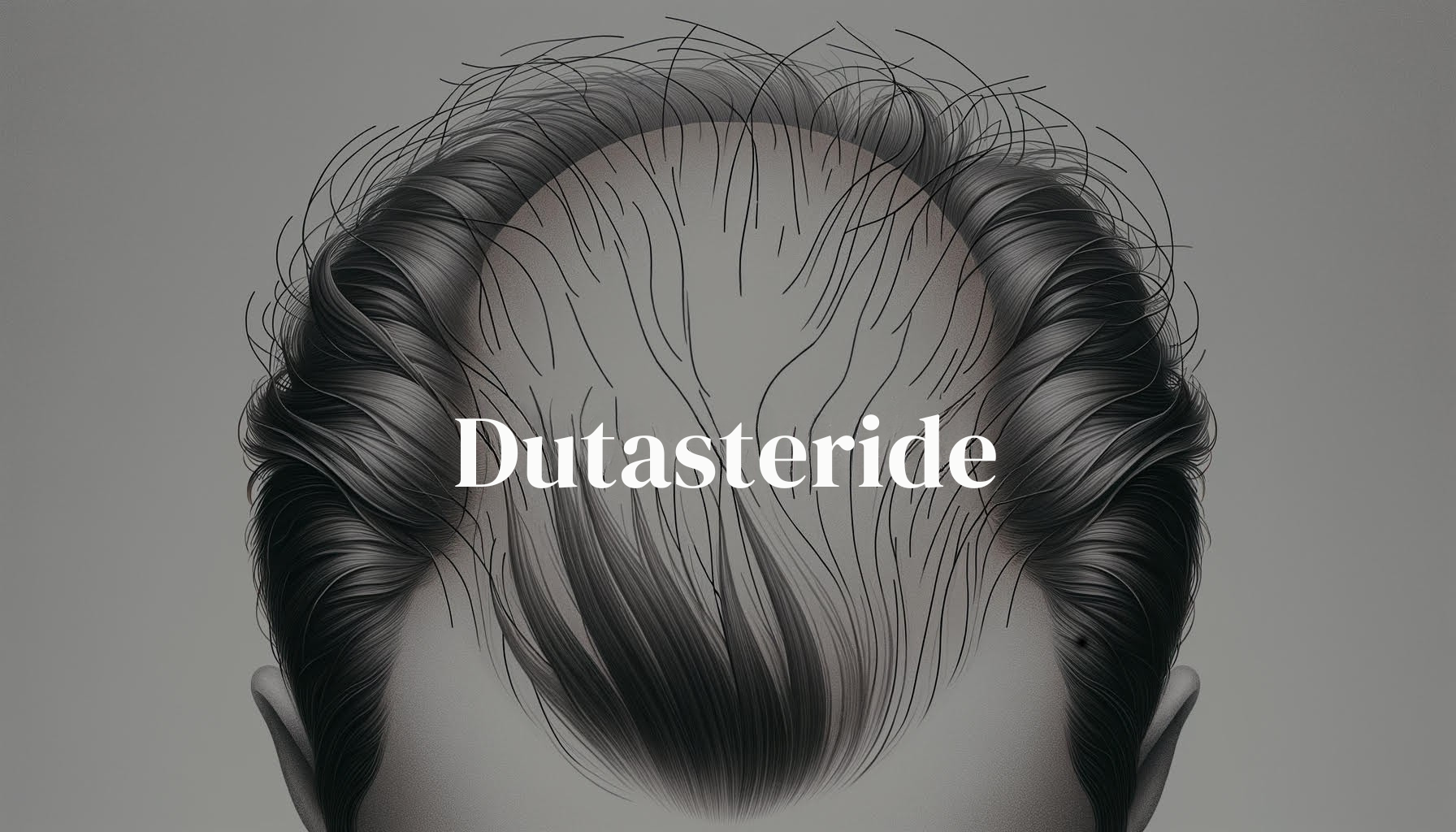
Article content
Dutasteride is a medication that is used to treat hair loss. It is mainly used in men suffering from androgenetic alopecia. This drug belongs to the group of 5-alpha-reductase inhibitors and works by blocking the enzyme 5-alpha-reductase, which converts testosterone to dihydrotestosterone (DHT). DHT is the main hormone associated with hair loss in individuals with a genetic predisposition to androgenic alopecia. Dutasteride reduces the levels of DHT in the body, which slows the rate of hair loss and promotes new hair growth.
And to whom can I prescribe this medication, and to whom can I not prescribe it?
Facts
- Dutasteride is an effective drug for treating hair loss, but it has its negatives too
- This drug is effective in about 90% of patients
- Dutasteride can also be used under certain conditions in women with androgenetic alopecia
- Dutasteride is prescription only medication
Dutasteride as a hair loss treatment
Dutasteride is registered to treat benign prostatic hyperplasia in men who have experienced prostate enlargement. Dutasteride in these men acts to improve urine flow, thereby reducing the need for subsequent surgery. Because dutasteride reduces DHT levels, it can also be used to treat male hair loss.
What happens when you discontinue Dutasteride
Dutasteride only works for the time it is taken. So any results achieved with its help are not permanent. If dutasteride is discontinued, return to the original state occurs within 6 – 9 months. Since the treatment consists of blocking 5-alpha-reductase, by stopping taking this blocker, the hair density will be reduced to a state as if the patient were untreated.
Side effects of Dutasteride
As with most medicines, dutasteride can have some side effects. The most common side effects include decreased sexual desire, difficulty getting an erection, and decreased ejaculate volume. Some individuals may also experience breast swelling and tenderness. And rash, digestive problems and rarely depression have also been noted in patients.
How often do these side effects occur? This issue was addressed in a 2016 study, which concluded that 3.4 – 15.8% of patients reported any of the side effects.
When dutasteride is discontinued, the side effects should disappear. It is important to consult your physician if you experience any side effects while taking dutasteride.
Comparison of Dutasteride with Finasteride
In addition to dutasteride, other medications are available for the treatment of hair loss, such as minoxidil and finasteride. Finasteride is the most similar to dutasteride. It is another 5-alpha-reductase inhibitor.
According to scientific studies, dutasteride is more effective than finasteride in treating hair loss. This is primarily due to the fact that finasteride only blocks type II 5-alpha-reductase enzymes, whereas dutasteride blocks both type I and type II enzymes.
On the other hand, dutasteride is more likely to have side effects that persist for a longer period of time than finasteride, due to the longer breakdown of this drug from the body. Each of these medications has its own advantages and disadvantages, and the decision on the choice of treatment should be individual and consulted with a doctor.
Dutasteride and women
Dutasteride is not officially approved to treat female pattern hair loss. However, both dutasteride and another 5-alpha reductase inhibitor, finasteride, are increasingly prescribed to women with androgenic alopecia. However, women should not become pregnant during the period of taking this medication. Dutasteride is one of the first choice drugs for patients suffering from frontal fibrosing alopecia (one of the types of scarring alopecia).
Conclusion
Overall, dutasteride is an effective medication for the treatment of hair loss in men and women with androgenic alopecia. It works similarly to finasteride, usually with better results but more frequent side effects. However, it is definitely not the only option to address hair loss. Common treatments for male hair loss include minoxidil, in addition to the previously mentioned finasteride, hair plasmatherapy or mesotherapy. It is important to consider the possible contraindications and side effects and to consult with a physician.
And finally, to answer your most common question you write to me.
Yes, I prescribe Dutasteride. You will have to come for an initial consultation, it is not possible to prescribe it without us examining you and assessing whether it is suitable for you at all. And it is not possible to prescribe it over the phone, online or by email, you really do need to come in person.





